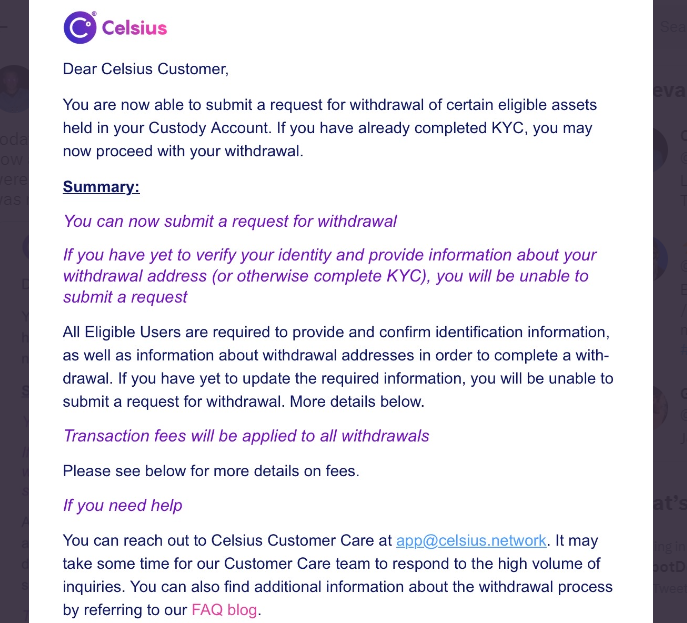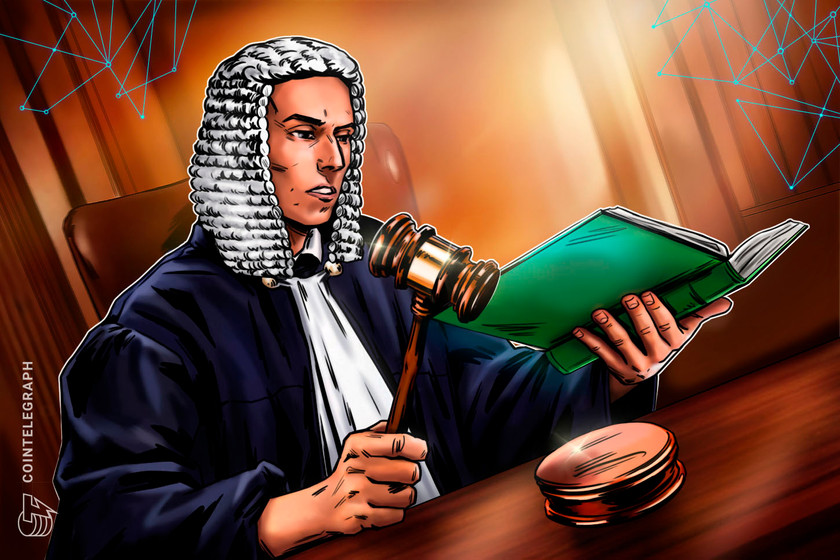Paxful to return lost Celsius funds to Earn users


Peer-to-peer marketplace Paxful will refund its Earn program users impacted by Celsius Network’s bankruptcy.
Crypto marketplace Paxful will refund its Earn program users affected by the Celsius Network collapse in 2022, according to a Twitter thread posted on March 29 by company CEO Ray Youssef.
“I’ve personally taken action and will be refunding all affected Paxful users,” wrote Youssef, explaining that funds will be available for affected users in the platform’s wallet in the coming days.
Celsius filed for Chapter 11 bankruptcy in the United States on July 14, leaving thousands of depositors with their assets locked up on the crypto lending platform. At that time, neither the company nor CEO Alex Mashinsky commented publicly about whether depositors could expect any percentage of their funds. According to the bankruptcy filing, user deposits comprised most of Celsius’ liabilities, at $4.72 billion.
We have done the right thing and refunded @paxful users who lost funds with Celsius Earn. I could not stand by and watch them suffer, so we’ve made them whole. Our users always come first to me, this is the way ! pic.twitter.com/aQox7qspOh
— Ray Youssef (@raypaxful) March 29, 2023
As of now, Paxful has not disclosed how much it is returning to customers. Cointelegraph reached out to Paxful, but did not receive an immediate response.
During a bankruptcy hearing on Jan. 4, Judge Martin Glenn ruled that Celsius owns the funds in the interest-bearing Earn program under its terms of use, not its depositors. Youssef commented on the decision:
“The collapse [of Celsius] hurt countless users and damaged trust in our industry. Paxful, like many others, were paralyzed to act as we could not retrieve funds held by Celsius. Another hit came when the courts ruled that Celsius Earn Account belonged to Celsius’ bankruptcy estate, not to its users. This didn’t sit right with me then, and it still doesn’t sit right with me today.”
Bankruptcy proceedings for Celsius are still ongoing. Recently, a settlement plan between the committee of unsecured creditors and a group of account holders was approved, allowing account holders to recover 72.5% of their crypto holdings. The defunct platform announced in February that NovaWulf Digital Management would act as a sponsor for its restructuring plan, claiming that over 85% of Celsius customers would be able to recover roughly 70% of their crypto assets.
























